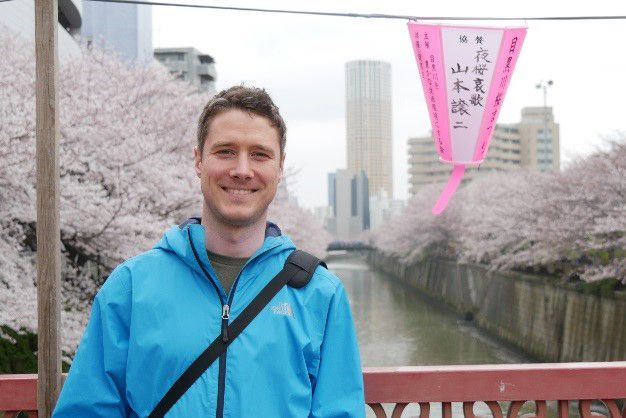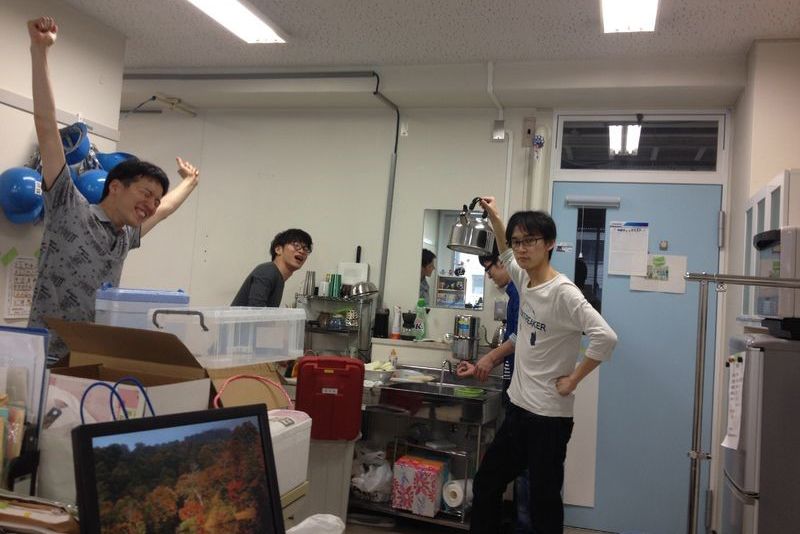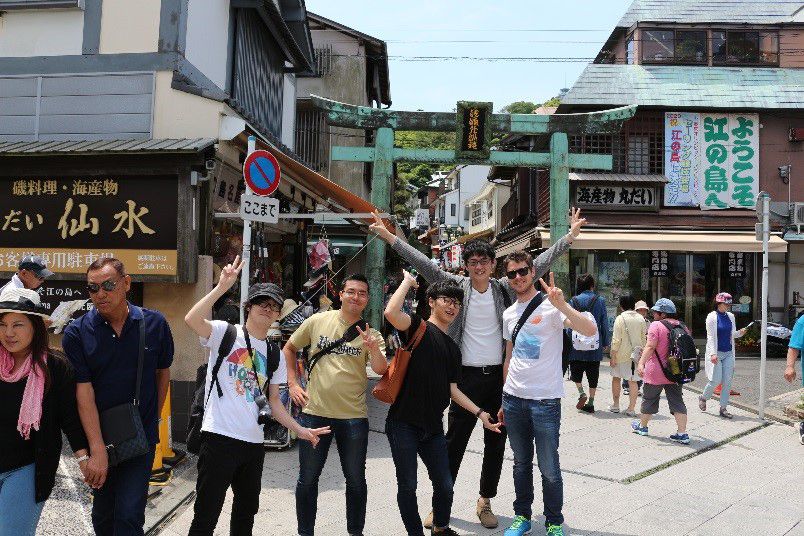
This article was recognised by www.stellenonline.de as one of the top blog posts on the topic of "Working & internships abroad" in 2017.
Field report from Andreas R.
こんにちわ! (Konnichiwa!) During my Master's programme at Leibniz Universität Hannover, I had the opportunity to study at a partner university in Japan for a semester. I went to the Tokyo Institute of Technology in Tokyo from March to August 2016 and took part in the Young Scientist Exchange Programme (YSEP).

Preparation
Before I could start my semester abroad, I first had to take care of all the formalities. My planning began a good year before my stay. For the application, I needed the usual documents such as certificates, CV etc., I also needed a letter of reference from a professor and a TOEFL test to certify my English language skills. Once I had been accepted from Hanover, the rest actually went very quickly. The organisation and communication with the Japanese university was very straightforward and once I had my visa I was ready to go.
Accommodation
I lived in a student residence for male international students. It was very clean, well equipped and close to a railway station. I had my own small room and shared the kitchen and bathroom with other students. The majority of the international students came from Asia (Thailand, Vietnam, Indonesia, Singapore). This meant that there were always interesting conversations and I had a cultural exchange not only with the Japanese, so to speak, but also with other Asians.
Study
I took part in the Young Scientist Exchange Programme (YSEP). This programme includes a small research project and various lectures. You can also attend other lectures as you wish. For the research project, you are assigned to a laboratory where you do your work. For Japanese students it is common for Japanese students to be assigned to a lab and spend a lot of time there on their own research topic. I chose Professor Shinno's laboratory, which deals with precision machining. I worked on a project there that was part of the research work of a doctoral student.

This was a prototype of a machine tool spindle that could be deflected in the nanometre range using a magnetostrictive material. material in the nanometre range. The planned courses in the YSEP programme were in English and taught about about Japanese culture, history and economy. I also took a Japanese language course and courses for my mechanical engineering degree. Everyday life at university is not much different from in Germany. The organisation and bureaucracy are similar, so I quickly found my way around. Every exchange student is also assigned a "tutor" from the lab, who you can turn to with any problems and who helps you get started very well. Thanks to the good organisation and support from the YSEP team, it was also no problem for me to complete the semester well and integrate it into my studies at Leibniz Universität Hannover. As Professor Shinno maintains very good contact with industry, I also had the opportunity to visit various companies. Together with him, I visited the machine tool manufacturers Makino and Okuma. And with the Japanese students from the I went to the Toshiba Machine Tools in-house exhibition with the Japanese students from the lab. This gave me a very good insight into the Japanese Japanese machine tool industry.
Conclusion

During this semester abroad, I learnt a lot, saw and experienced interesting things and met lots of great people. people. These many different impressions made my stay an unforgettable experience. Above all, this includes the experience of living in such a great and different country with a completely different culture. Apart from the people and friends I met, the food and nature are my biggest highlights in Japan. are my biggest highlights in Japan. I can only recommend anyone who has the chance to visit this beautiful country once and immerse yourself in Japanese culture.